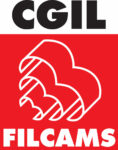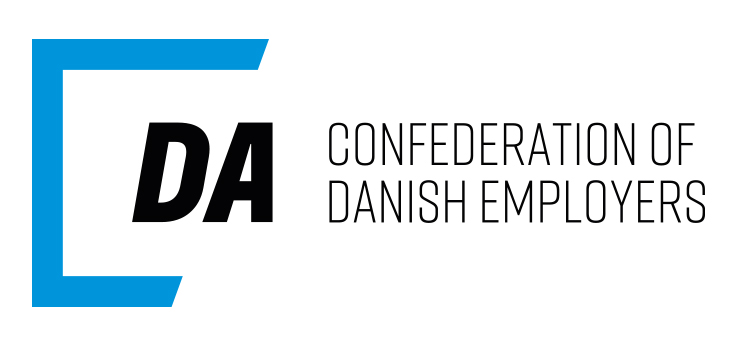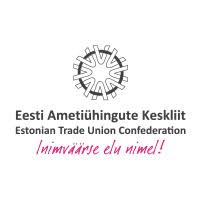associate organisations












The Marco Biagi Foundation was established in December 2002.
Pursuant to its Statute, the Marco Biagi Foundation is an instrumental body of the University of Modena and Reggio Emilia, as a public engagement body bringing together universities, public bodies and enterprises thus contributing to the promotion and consolidation of the economic and cultural development of the local area.
The mission of the Marco Biagi Foundation is to promote and consolidate relations between higher education and the world of work, with particular reference to the institutions, associations and enterprises in the territory where it operates. For this purpose the Foundation favours the integration in the local and national context of a labour relations culture promoted by advanced university training. Young people and the labour market, a key issue in Marco Biagi’s reform proposals, are at the centre of the activities of the Foundation, which serves as in ideal forum for exchanges between the Universities, the institutions, enterprises and associations, in order to achieve a convergence of objectives and interests. The main task of the Foundation, which operates solely in the interests of the University of Modena and Reggio Emilia, that provides the institutional framework, consists of promoting and implementing studies and scientific research projects at national and international level in the field of labour relations; promoting master’s programmes, training courses, internships and career guidance programmes, higher education projects, including advanced level apprenticeships, and doctoral research programmes. The Foundation intends to maintain a programme of activities in close synergy with the local system of production, making full use of the experience and skills acquired in the thirteen years of its activities. In pursuing its institutional mission, the Foundation supports Unimore trough high education courses and a PhD course.
Founded in 1737, Georg-August-Universität Göttingen is a research university of international renown with strong focuses in research-led teaching. The University is distinguished by the rich diversity of its subject spectrum particularly in the humanities, its excellent facilities for the pursuit of scientific research, and the outstanding quality of the areas that define its profile. From 2007 to 2012 Georg-August-Universität Göttingen was rewarded funding from the Initiative of Excellence of the German Federal and State Governments with its institutional strategy for the future entitled “Göttingen.Tradition – Innovation – Autonomy”. The University was able to realise all measures of the concept. Now Göttingen University develops the successfully established measures further to continously advance the University’s positive developments in research and teaching.
At the beginning of 2003, the Georg-August-Universität became the first German university with acomprehensive range of disciplines to assume the legal status of a foundation under public law. The University has since then enhanced its research profile, created new research entities such as the Courant Research Centres and the Lichtenberg-Kolleg, intensified cooperation on the Göttingen Campus, attracted and retained outstanding academics and supported the recruitment of excellent students and young academics from abroad.
The University of Lodz (UL) is one of the leading institutions of higher education in Poland. It is also one of the strongest science and research centers in the country. The 12 faculties of the University provide programs in 37 fields of study and 182 specializations. Almost 38,100 students that attend classes at different faculties of the University are taught by 2 196 academic teachers. Well-equipped classrooms and laboratories together with highly qualified researchers are the foundation of the University of Lodz. UL has been carrying out extensive international scientific and research cooperation with foreign academic and research centers as well as with national and international organizations, governmental institutions, local authorities and industry.
The faculty members have worked on several hundreds of nationally and internationally funded projects focusing on various aspects. The institution has gained experience and reputation as a reliable project coordinator and project partner, as well as a strong international science and research center. The University has a long experience in the implementation of international research and educational projects both as a partner and coordinator. UL is one of four Polish universities which gained a place in the QS World University Rankings.
Founded in 1088, the Alma Mater Studiorum – Università di Bologna (UNIBO) is known as the oldest University of the western world. Nowadays, UNIBO still remains one of the most important institutions of higher education across Europe and the second largest university in Italy UNIBO has gained a considerable experience in International and European research projects, UNIBO is the second Italian university for the attractiveness of European funding for research, 37st in the European ranking of institutions of higher education. In Horizon 2020, UNIBO is so far involved in 162 funded projects (39 as coordinator) with 57.8 ML Euros of funding. At National level UNIBO ranks second for competitive research funding from the Italian Government.
Aarhus University is a government-funded, self-governing institution under public sector administration.
Aarhus University is responsible for conducting research and offering world-class re-search-based education and research-based consultancy services to public sector authorities, disseminating knowledge of scientific and scholarly methodologies and results, and exchanging knowledge and competences with society at large.
IRES Emilia-Romagna is a Social and Economics Research Institute founded in 1982 by the trade union confederation CGIL of Emilia-Romagna.
IRES ER carries out economic and social research and documentation activities, empirical analyses, databases and observatories on economics and collective agreements, in collaboration with Associations, Agencies, Universities and scholars. Furthermore, it organises seminars, conferences and European meetings.
Over the years IRES ER has focused on Social and Economic Development, and particularly on:
MOSZ, the National Federation of Workers’ Councils was founded in 1990, at the time of the political changeover, to continue revolutionary traditions and to operate as a true democratic grassroots advocacy organization thereby providing an alternative to trade unions that were minions of the State party.
The National Federation of Workers’ Councils is committed to advocating for workers’ interests and considers its historical roots important. Its programme based on personal development, solidarity, responsibility for the family, and respect for decent work is based on Christian values.
MOSZ is a shaper of workers’ living and working conditions in Hungary as well as internationally. The Federation is an active participant of national bipartite and tripartite reconciliation forums where it regularly speaks out for workers’ interests.
The University of Bari Aldo Moro (UNIBA) is a public body, founded in October 1924 with approximately 50.000 students. It offers 113 courses as well as 104 master and specialization and 87 PhD courses. It is one of largest University in Italy and the second in the South of Italy.
The Department of Law organises 4 study courses in the legal area: 2 courses LMG / 01 (master’s degree in Law – single cycle), one of which is focused on developing the skills of the “corporate lawyer”; 2 three year courses L-14 (Sciences of legal services and Labour Law Advisor).
The research of the Department of Law covers all the disciplines of the legal area, as well as the political economy sector (SECS / P01), adopting a multidisciplinary research approach. In addition, most of the research groups active in the Department are dealing, alongside the main legal issues in the relevant scientific sectors at national level, also with international, EU and comparative issues.
The Institute for Social and Trade Union research is a non-governmental research organisation at the Confederation of Independent Trade Unions in Bulgaria (CITUB). It was established in 1990 . ISTUR provides: Research; Training and Consultancy in the field of:
The University of Tartu as a national university of Estonia bears the responsibility for solving problems faced by the society by ensuring the continuity of Estonian intellectuals and language and culture and by contributing to the development of education, research and technology and other creative activities throughout the world.
The core values are:
2.1. Research-based activities providing us with a way of thinking that entails critical analysis, a search for connections and the pursuit of truth and that is targeted at solving problems. Research-based activities are the criterion for professionalism in everything we do.
2.2. The academic freedom and autonomy of the university through which we creatively and devotedly implement our mission.
2.3. Openness to new ideas. Relying on our traditions, we are always open to innovation and to contributing to positive changes within the university as well as in the world around us.
2.4. Cooperation between people, institutions and research areas at the university, in Estonia and at the international level. We use new knowledge arising from cooperation for the benefit of the society in the
best and most responsible manner.
2.5. A human-centred approach and individual development. We value the people who work and study at the university and create the best conditions as well as an inspiring working and learning environment for their development and self-expression.
2.6. Responsibility. We realise the social impact of our actions and omissions. Our words and actions are filled with responsibility for the past, present and future